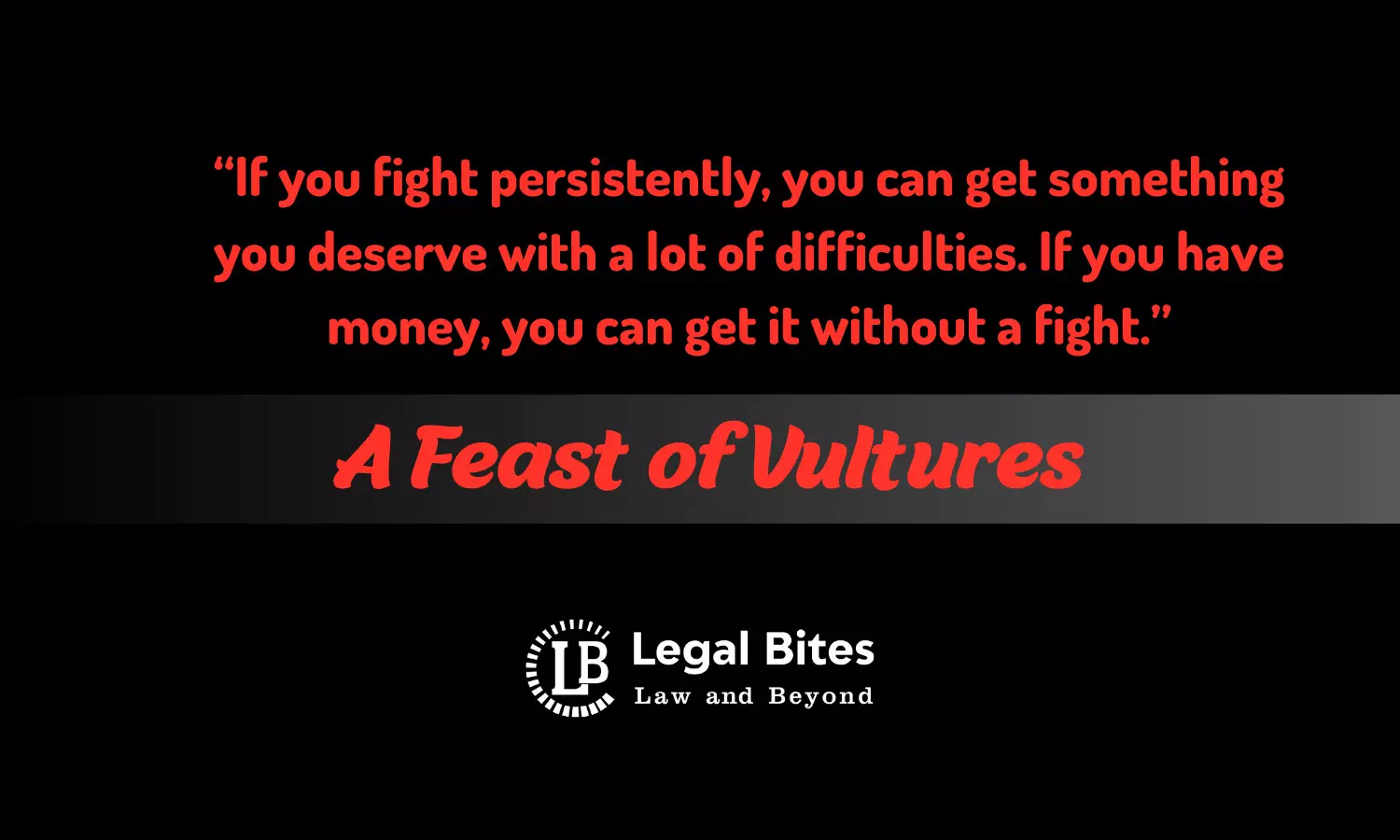Book Review: A Feast of Vultures by Josy Joseph
A Feast of Vultures by Josy Joseph deals with “The hidden business of democracy in India.”

“A Feast of Vultures by Josy Joseph” deals with “The hidden business of democracy in India.” Looking at the contents of the book, it is hard to believe that it belongs to the non-fiction genre. From a story about a small village that needs roads and a hospital to one about high-profile business rivalries and shady politics, Joseph weaves together a masterpiece for the ages to come.
One may come across at least two kinds of non-fiction books in his or her lifetime- the first containing idealistic notions about how the world should be and the second dealing with the question of how it actually is. Josy Joseph is an award-winning investigative journalist. Throughout his career, he has observed the prevalence of one common problem in the Indian Political System, which he tries to express through his book. He reflects upon his two decades of work as an investigative journalist to bring forth the slimy truth about politics in India.
The book is divided into three sections.
The first section, entitled “The Middlemen”, gives an insightful account of how things are done in India.
Whether it is about getting a birth certificate or closing lucrative national arms procurement deals, everything can be achieved with the help of the faceless individuals behind great men whom Joseph chooses to call the “middlemen”. These middlemen have the power to take anyone from rags to riches in about a day’s time. They are the ones who practically run almost the entire country. The section contains an interesting chapter on middlemen in the defence sector titled “Arms and the Middleman”. The title is a clever reference to George Bernard Shaw’s “Arms and the Man” which brings forth the truth about war and the bravery of soldiers.
The chapter speaks of a famous industrialist being a middleman in defense deals in the following words- “The name of an entrepreneur who is a member of Parliament was often heard in connection with major defence deals. His own conduct, including an aggressive embracing of military issues, further fuelled the suspicion that he was indeed the man who facilitated a major defence deal with a European firm that ran into tens of thousands of crores.” This paragraph alone gives a hint of everything that is wrong with middlemen being involved in sectors as crucial as defense.
The second section, entitled “The very private sector” is the most thrilling part of the book.
The most interesting story is that of the rise and fall of East-West Airlines. It consists of everything- two competitive businessmen, secret ties with the underworld, a high-profile murder, and a subsequent hushed-up investigation.
The section also highlights an important fact- that a major part of the Indian Parliament consists of businessmen furthering their own interests. Is it that nobody noticed or is it that they chose not to take note of it? The answer lies in the book. There will be moments when you will feel like closing the book in shock and despair, but Joseph’s narrative and flair of writing would compel you to read on and experience more of it.
The third section, entitled “The Big League”, takes the book to a whole new level by presenting damning evidence against those whose names we see daily in the newspapers.
It speaks of those men and women who, according to Joseph, are the ultimate beneficiaries of the ‘business of democracy’ in India. Beginning with a chapter on the most wanted economic offender in India and ending with one of the ‘palaces’ of one of the richest men in Asia, the section clearly stands out as the bravest and most unapologetic one in the entire book.
In a time of strong charismatic leadership and whooping political changes, Josy Joseph’s “A Feast of Vultures” reveals the truth about democracy in India. The title of the book itself suggests how the nation’s democratic soul has become a feast for the so-called “vultures” running the country. The book comes up as a reality check for all those who believe in the efficacy of post-socialist India. The sad truth about democracy in India is that politicians come and go, the filthiness does not. It stays there, poisoning the entire system and laying down a path for systematic exploitation and destruction of a nation. At the end of the book, one thought of realization that will surely come up in every reader’s mind is the fact that everyone is for sale here. The author tries to end on an optimistic note with a tinge of pessimism. Things may change, he says, in the long run. However, he adds, in the long run, we will all be dead.
Published On: Jul 29, 2019


